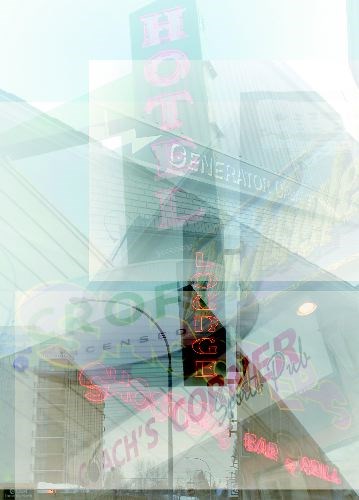Police empowerment to eject undesirable patrons from bars and restaurants might soon be coming back to Prince George.
The BarWatch Program re-launch is still vague but there is a will among the necessary players - bar operators, the police and the municipal government.
"The topic came up again at the gang crime summit," said Rod Whitwham, director of Public Safety and Civic Facilities.
A report on the gang crime summit, which was initiated last year by The Citizen following a high profile, midday murder on a neighbourhood street, was presented to city council on Jan. 24.
"We are looking at what some other communities are doing, what has worked best, what has not worked well, what the best model would be for application here," said Whitwhan.
"It could be months or it could be sooner depending on when the information comes together. The detachment has been doing some research, and we need to do more of that as city staff, and then I anticipate that will come together for a presentation of that information to council for their decision."
Police have the right to enter a bar and enforce the law, however if a crime isn't in progress, they can do little.
Under BarWatch, police are given permission by the bar operator to eject those threatening violence or other serious crime.
Bar operators are often reluctant to initiate such confrontations because staff and owners have been targeted for violence.
Ted Coole is the former owner of the Roadhouse Cabaret and Prince George Hotel, and currently involved in both the Westwood Pub and a proposed club at the vacant Cadillac Ranch spot.
He said the sooner BarWatch could get underway again, the better.
"This could be the answer the public, the police, the business owners all need on this issue," he said. "It could change the world for dealing with people coming to your door you know are gang members.
"We have seen in Prince George, through the work of the police, that these guys are packing machine guns and all sorts of other weapons. And as a bar owner you have to go up to them, to their face, in front of their buddies, maybe in front of the girl they were trying to impress, and tell them they can't come in, that they have to leave. When they stare back at you and tell you they know who you are, they know where you live, they know how to find you later..."
Coole is concerned no meetings have yet been meetings between bars, the municipality or the RCMP. After seeing the initiative start and stop for the third time in 2008, Coole is concerned over where it sits at City Hall and Prince George RCMP detachment.
"It was started back up again in about 2007 or 2008 by [then]-Sgt. Jeff MacArthur and it was looking really good, but it hit some sort of roadblock at higher levels in the RCMP and it stopped," said Coole. "I know he is still interested, and a number of other RCMP members involved in the downtown and involved in dealing with the gangs, are interested in bringing it back again and hopefully this time to stay."
BarWatch
The thinking behind BarWatch is, according to the proponents of the program, that any business owner has the legal right to refuse service to anyone.
Refusing service to someone who might turn violent or commit a crime or attract others like that is seen as a business owner's duty to public safety as well as damage prevention to the place or the people in it. It is, supporters say, good for business and safer for the public.
Owners of social hotspots have so many people of this description coming into contact with their establishment that they have to hire security staff to prevent the entry of undesirable people or eject undesirable people if they get in. The bouncer is a longstanding staff position all across B.C., Canada, and the world.
In today's context of organized crime and shockingly aggressive violence, that kind of confrontation is no longer safe for any sort of staff at a social spot. Business operators are asking police to do that, out of fear for their staff's and their own safety.
Police and business operators sign an agreement that give explicit instructions that allow police to do the frontline work so the staff doesn't raise the ire of the person being ejected. The permission to come in and make ejections is signed to police in an advance document.
Versions of BarWatch (called by other names in some places) is already in place in Vancouver, Abbotsford, Chilliwack, Langley, West Vancouver, Nanaimo and other B.C. jurisdictions. Many have been operational for years.



